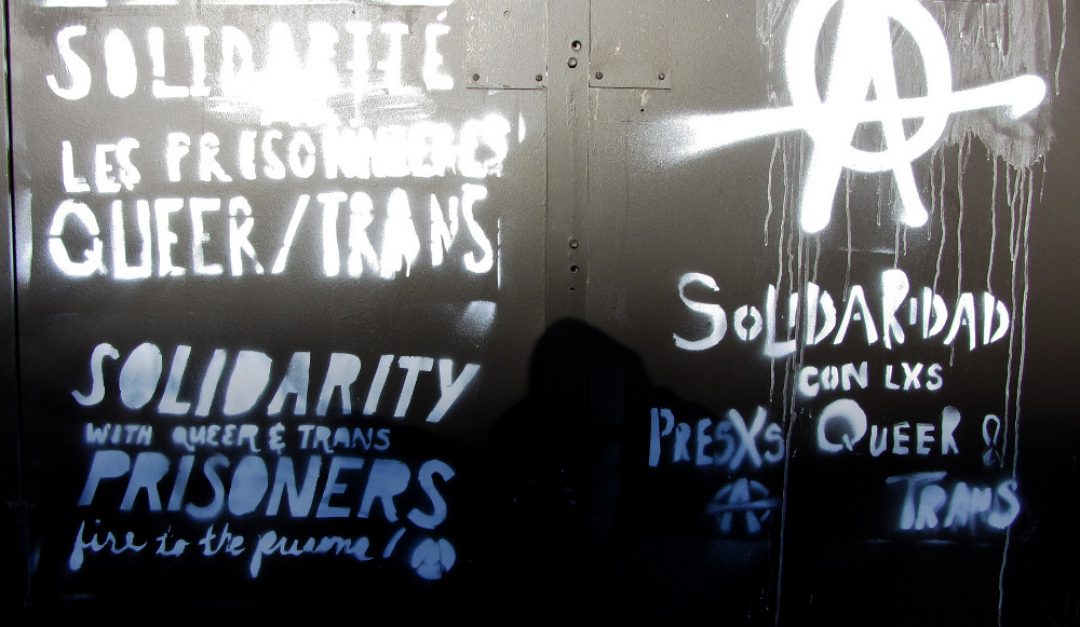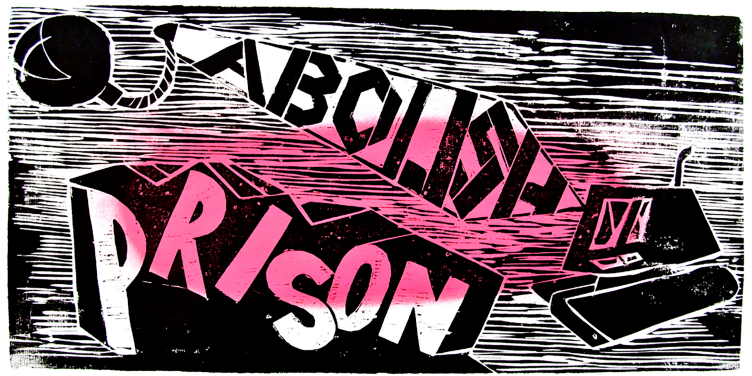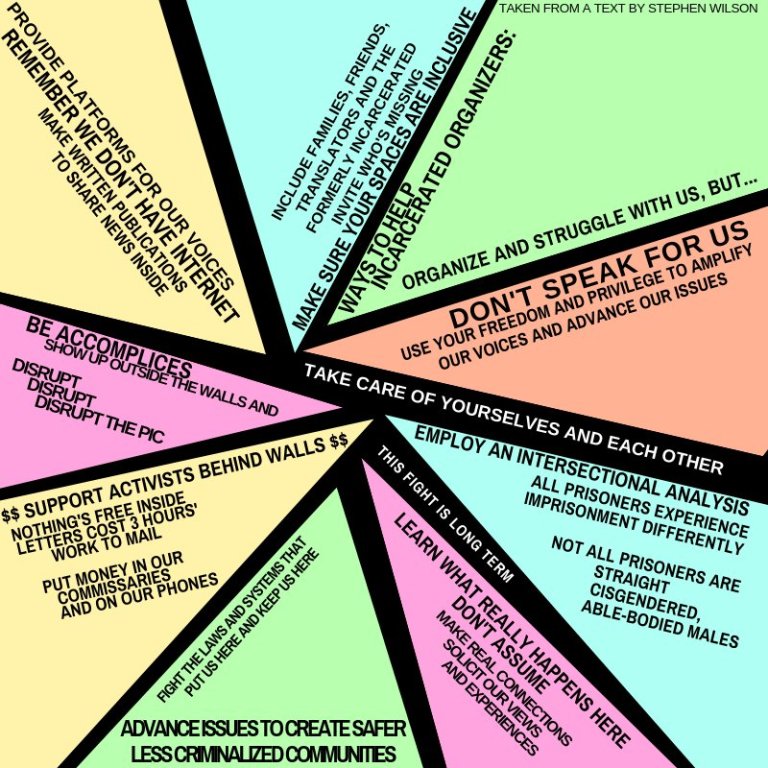Two months ago, a friend and fellow prisoner, prepared to max out her sentence. She is a Black trans woman who had to do her time in a men’s prison: over two decades of time. The world has changed tremendously since she came to prison. I worried about her transitioning to the “free” world. She didn’t have a strong support system out there.
I was able to connect her to some abolitionists in NY and PA. I wanted her to know that there are people out there who care about her, that don’t want to see back inside. Before she left the prison, she had spoken to some of these folks on the phone. They created a fund to help her prepare for release. When she found out, she was grateful and floored by their generosity. These abolitionists even spoke with her family to ensure she had a home to go to upon release. They even got her furniture. When she left, she knew she had a support team. And I am glad she did.
Her living situation turned ugly. She had to face transphobia daily. She persevered, but enough is enough. I had her promise me, before she left, that she would use her network if things got bad. I didn’t want her to fall into despair and end up back inside.
She held onto that promise. In the face of severe transphobia, feeling despondent, she reached out. And abolitionists were there to support her. She is able now, through the efforts and generosity of others, to get her own place. She is working, but needed help with the move in. And help she got. This is abolition in action.
Recently, I asked people to define abolition in just six words. Two people, one in Illinois and the other in New Jersey, paraphrased Ruthie Gilmore: not just absence, but a presence. Abolition is very much so a presence. It is about what is there and/or what we are building to be there. It is not just about eliminating something (e.g., police and prisons); it is about creating what we need to live, love and thrive. What these abolitionists did was about being present for another human being.
More and more, I am discovering that a major part of abolitionist praxis is just showing up, being present for others. How else will we be in and grow community? It is showing up that really demonstrates abolition to others. We are creating the world we want to live in. A world of care, concern, and connection.
I want to thank those people involved in supporting my, our, friend. She knows abolition is real. Their actions were the best possible advertisement of abolition. These folks know who they are so I haven’t named them. They are living abolition. Thank you.
Always,
Stevie



